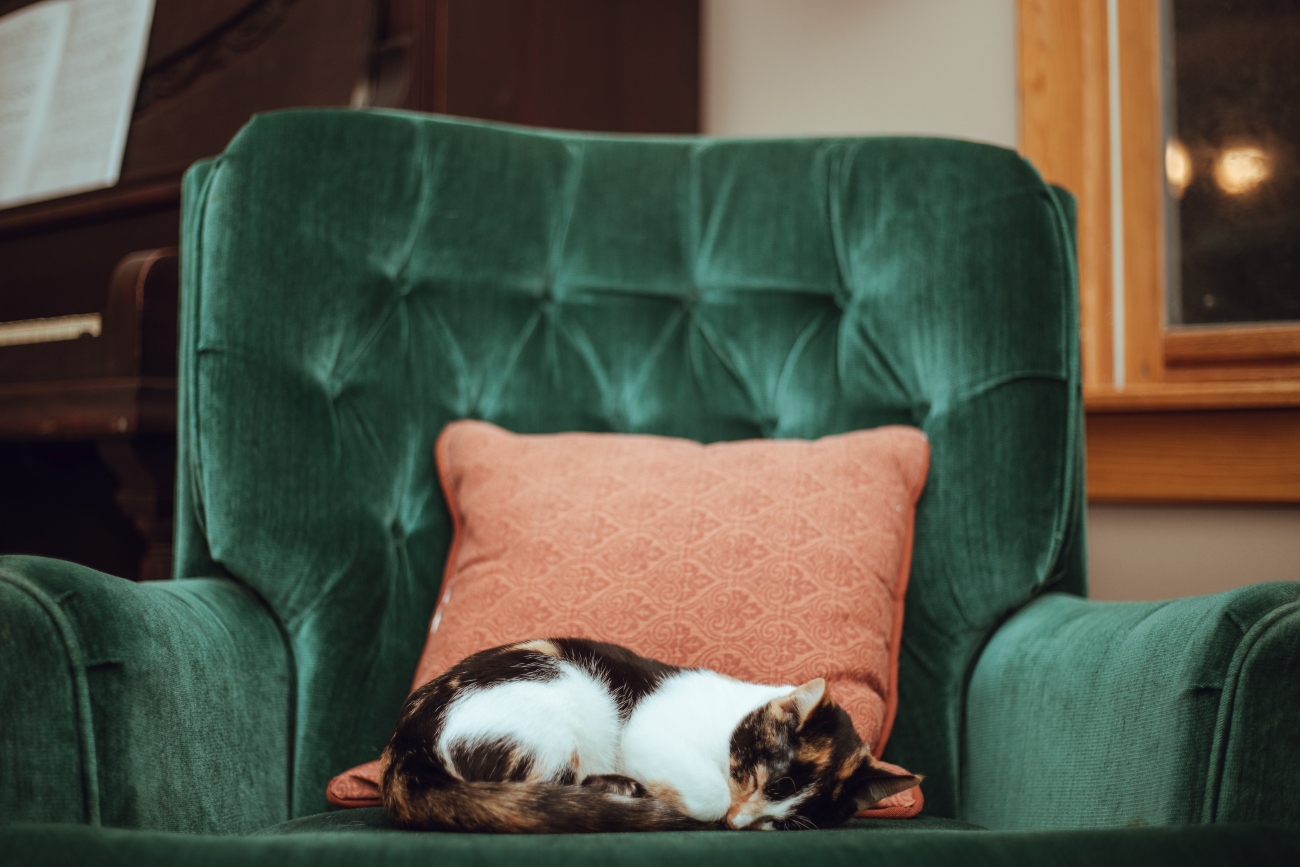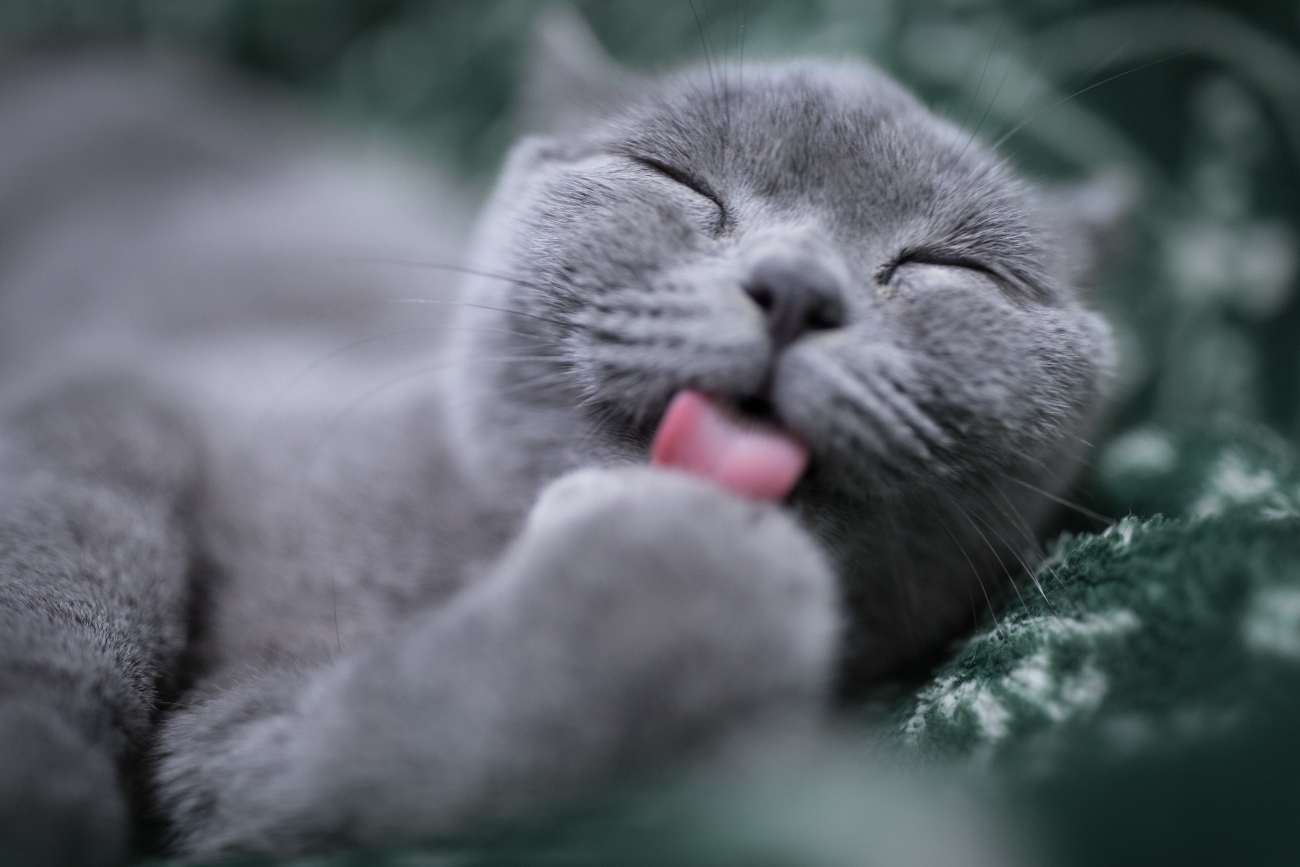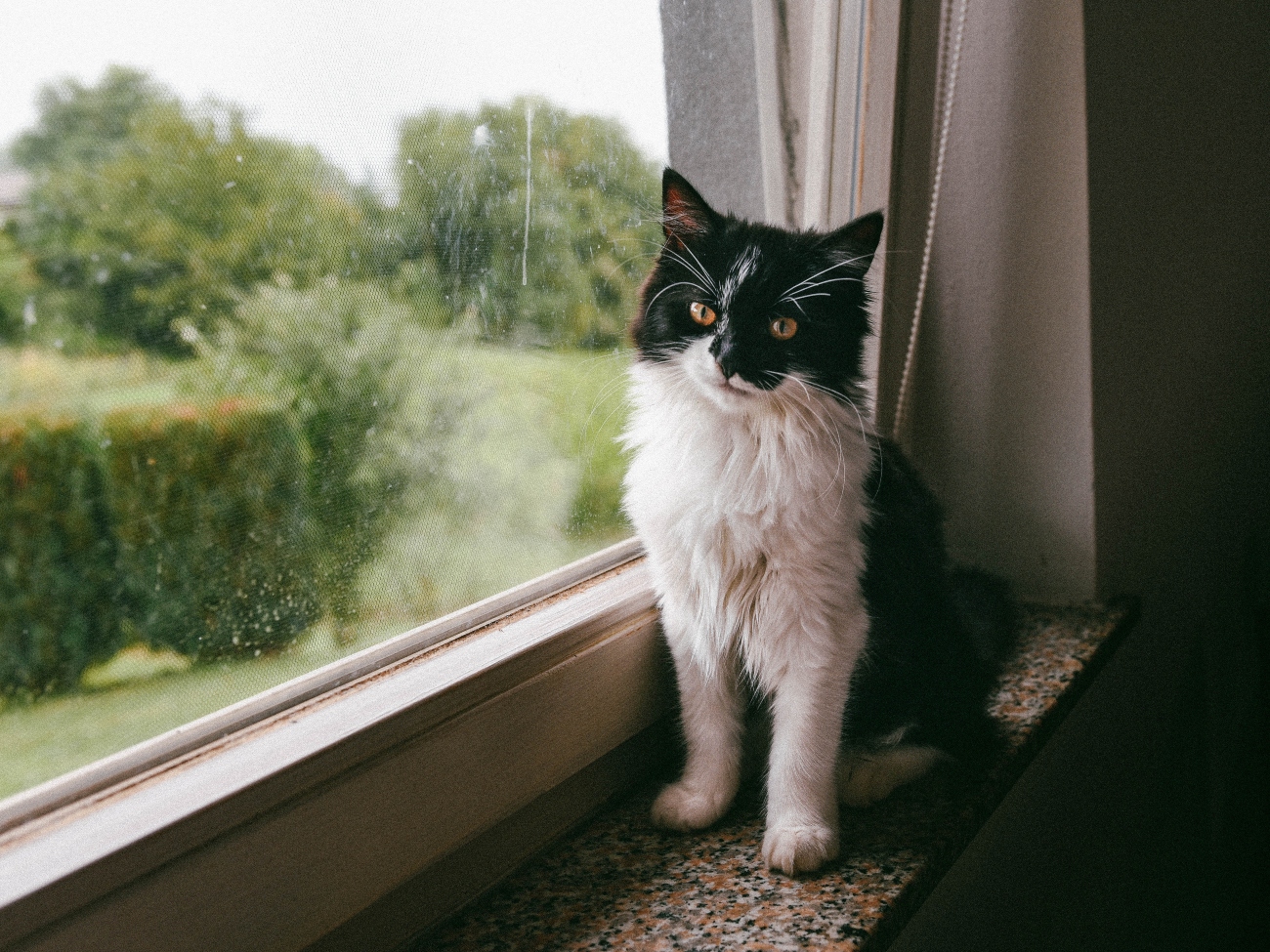
What is hyperthyroidism in older cats?
7th January, 2022
Hyperthyroidism is a condition that causes one or both thyroid glands to enlarge and to produce too much thyroid hormone and it affects older or middle-aged cats.
Is it serious? Well, the vast majority of hyperthyroidism cases are brought about by a harmless swelling of the thyroid gland. Medication or surgery will treat these effectively. The remaining 1-3%, however, are due to cancerous growths. Here, the outlook is less clear.
A cat with hyperthyroidism will lose weight, will seem restless and will likely have an increased appetite. There are some other symptoms to look out for, too, which we'll examine in more detail below.
The good news is that a wide range of treatment options are available. What's more, if you have some older cat insurance in place, you should get some financial help with many of them. And, if their treatment is well managed, hyperthyroid cats can live normal, happy lives for many years.

What causes hyperthyroidism?
Cats, like humans, have two thyroid glands in their neck. Attached to the windpipe, these glands control your cat's metabolism – the series of chemical reactions that convert food into energy.
In middle-aged and older cats, these glands can become enlarged and over-active – harmlessly in the vast majority of cases, but occasionally as a result of a developing cancer. This will, of course, need its own separate cause of treatment, which is why it's crucial to alert your vet as soon as you detect any of the signs or symptoms.
What are the symptoms of hyperthyroidism in cats?
Whatever its causes, hyperthyroidism brings on a high heart rate and blood pressure, plus weight loss. These signs will come on slowly, so don't expect to see a radical change in your feline. Instead, be alert for any changes, no matter how small. As the PDSA explains, other signs to look out for include:
- Increased hunger as a result of their increased metabolism
- Increased thirst and drinking more
- Going to the toilet (peeing) more often
- Sickness and diarrhoea
- Dry, messy coat
- Lethargic and low in energy
- More demanding of your attention than usual
Should you contact your vet?
Absolutely. If your cat displays any of the signs we've mentioned above, you should get straight on the phone to your vet. They will want to take a look at your pet and, if the symptoms seem to tally, they will probably want to take a blood sample. This will flag up high thyroid hormone levels in the blood.
If you’ve got older cat insurance through Petwise, you can also call the 24-Hour Vet Helpline for advice.

How is hyperthyroidism treated?
When it comes to treating the condition, you may have a few options. You can chat to your vet about what may be most effective for your cat.
The commonest treatments are medication to slow down the overactive thyroid gland(s), or surgery to remove them.
Medication can come in either tablet or liquid form, and must be administered for the rest of your cat's life. Stopping the medication will mean a return of the symptoms.
If you do go down the medication route, your cat will still need to be monitored. Blood tests and regular vet checks will be important. Make sure your senior cat insurance helps you to cover these. Also bear in mind that some cats can be very reluctant to take tablets!
Surgery, on the other hand, will remove the thyroid gland(s), meaning that your cat won't need medication. The exception is during the weeks before surgery, when medication will be required to settle the thyroid in readiness.
The drawback to surgery is the risk involved. The issue here is with the parathyroid, a tiny gland that lives next to each thyroid gland and which controls calcium levels. Being tiny and so close to the thyroids, the parathyroid can get damaged during surgery. If so, your cat may become ill and need treatment for hypocalcemia, a deficiency of calcium.
Other treatment options
Surgery and medication are the two most common treatments, but other options may be available. For example, your vet may suggest putting your cat on a low iodine diet. This will prevent overproduction of the thyroid hormones – but it is a restrictive diet. For example, it will mean no treats, no human foods, and no hunting or scavenging. This may not be suitable for more outdoor cats.
Finally, you may have the option of radioactive iodine treatment, which destroys the problematic thyroid gland(s) without the need for surgery. This will need to be carried out at a specialist veterinary hospital. Check to see whether your older cat cover can help with the costs of this procedure.
How should you care for your hyperthyroid cat at home?
If your cat has had successful surgery, they should be back to their old self within weeks – gaining weight, eating normally and generally seeming healthier and happier.
If, on the other hand, you take the medication option, it's important to follow the dosage instructions closely and to keep up the vet's visits so that your cat can be monitored closely.
How much will treatment cost?
This is hard to answer, as it very much depends on what treatment your vet recommends. It's important to be clear with your vet about what you can manage financially, as well as what you think will work best for your cat.
As in so many cases, we'd strongly recommend having some older cat insurance in place – as this should help with some of the costs involved, especially if your cat needs emergency care.

Will your cat make a full recovery?
In the overwhelming majority of cases, medication or surgery will bring about a complete recovery. However, in that small percentage of cases that are caused by thyroid cancer, your older cat may not get better.
Also be aware that removing one thyroid gland may not always be the end of the matter. The other gland may enlarge some time in the future. So remain vigilant for a return of the symptoms we mentioned above.
Older cat insurance with Petwise
Here at Petwise, we are able to offer no fewer than seven different levels of older pet insurance, so you can choose the level of protection that works best for you and your cat.
Take a look at our benefits – and contact our friendly team to arrange your cover.